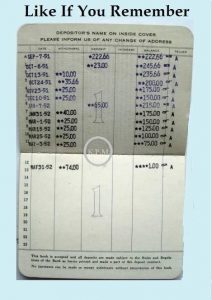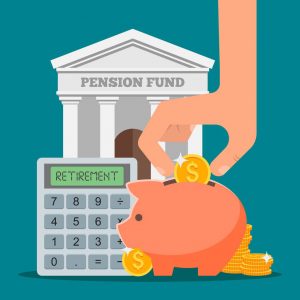Depression

He walked into Bruegger’s with a quizzical look on his face.
“How are you?” my friend asked a bit tentatively.
“Much better,” I replied.
“I thought so. I could see the sparkle in your eyes from the door. You’re back.”
“I am,” I smiled sheepishly.
It’s that obvious from the outside. I didn’t have to say a thing and he could see the change in my countenance. My fall, you see, had been marked by a low grade depression. It wasn’t clinical. I didn’t change my eating patterns or manage my stress differently. I didn’t lose my appetite for intimacy or sleep more than normal. I could do my job, but at times I felt like there was a glass wall between my world and me. I was with you, but I wasn’t. There was a loss of hope. It was work to put one foot in front of the other.
I had my quiet times. I read my Bible. I prayed. But it felt like I was just going through the motions.
We did social things – met with our supper club, had our daughter over for dinner, talked with my parents out of town, played golf, celebrated holidays. But… there was always “but.” There was always a cloud.
Now I know that this wasn’t the depression that many suffer. It paled in comparison. I didn’t need medication – though I did ask my doctor if he thought I was depressed. He laughed and said, “Palmer, I thought you would tell me that!” We laughed, but he did take me seriously.
Many suffer greater pain than a loss of hope or a lack of sparkle in their eyes. Many feel suicidal, desperate, and don’t want to get out of bed in the morning. Many don’t. Their pain is certainly greater than mine.
But mine was real nonetheless. And I couldn’t shake it. I did the things you can do. I exercised. I ate well (or as well as I ever do!) I didn’t isolate. I engaged with people and at work. I did the chores. But I couldn’t shake the melancholy. I couldn’t find the hope.
Lynne was great. She invited me to put words to what she saw. I would resist and then relent. Sometimes it felt better and sometimes it didn’t. But somewhere inside I knew it was good for me to name it. I shared bits and pieces with my small group. But some had a hard time taking me seriously. I am, by nature, an optimistic person. I enjoy the day and like my life, my friends, my marriage, and my job. So I could fake it well enough that others didn’t necessarily know, or they assumed I was just having a bad day.
Three, four, five months… and I kept waiting for it to lift… but it hung around.
In November, I led a Bible study for our staff on Romans 7 – “I do what I don’t want to do. I don’t do what I want to do.” You know that section. Paul ends it with “Wretched man that I am, who will deliver me from this body of death?” (Romans 7:24) When I studied the word “wretched,” I was shocked. I have used that very verse hundreds of times, interpreting “wretched” to mean “sinful.” I thought Paul was highlighting his sinfulness.
But I was wrong. The word actually means “helpless.” Paul was highlighting the truth that he cannot even control himself. He really is helpless. Now I don’t know about you, but I would rather be sinful than helpless. At least with sin I can repent or try to repent. I can claim forgiveness and try again. But with helplessness I am left being…. helpless. Floundering. Caught up in a raging current with nothing to grab hold of. And that is what it felt like. Helpless. Out of control. Needing to be rescued.
My idol of choice would be self-reliance. I want to be able to work my way to wherever it is I am going. I want to be in charge of my own destiny. I want my faith journey to be up to my hard work. But God said “See! See how powerless you are. See how you can’t work your way out of this. See how limited you are, so much more than you ever knew. See how much you can’t even control yourself. See how much you need me!”
And when I prayed that prayer, Paul’s prayer or plea, something inside me slowly began to change. It wasn’t a bolt of light or a Damascus Road experience. It was more gradual. But helplessness became my mantra. “Lord, I see it. I see my powerlessness. I see my need for reliance upon you. My utter reliance upon you. And I don’t want to lose it.”
But – slowly but surely my self-reliance tries to return. Hard work reasserts itself as the antidote and the hope. And yet something inside me has changed. I do know powerlessness and helplessness in ways I have not known before. And with the helplessness comes a grateful sense of dependence upon a God who has, does and will rescue me from this body of death. I really do need Him.
I don’t know what your experience of depression is. The clinical brand is much worse than what I just described. And the clinical brand almost always is marked by a chemical imbalance that requires medication more than a spiritual awakening. But both remind us of the fragility of our own hearts and lives. Both remind us of our need for God to sustain, to intervene, and to remind us of the truth – “Helpless man that I am, who will deliver me from this body of death?”
And that reminds us of Paul’s answer in the next verse – “Thanks be to God – through Jesus Christ our Lord!” (Romans 7:25)

Palmer Trice is an ordained Presbyterian minister. He is married to Lynne, has three children and has been in Charlotte since 1979. In his spare time, Palmer enjoys golf, tennis, walking and reading.





2 comments
Thanks for sharing this message. So glad you got your sparkle back. Also, so thankful that we have such an awesome God to carry us through.
Palmer, thanks for your vulnerability and encouragement – glad we have a Savior who actually prefers that we are needy, unlike the world which favors self-reliance. Hope to see your sparkling face soon.